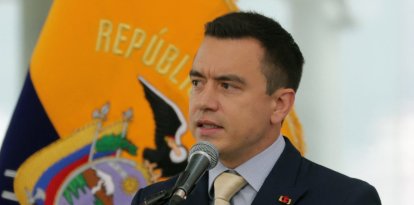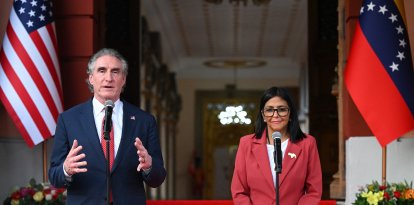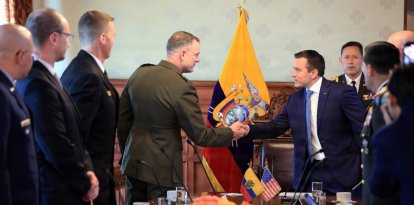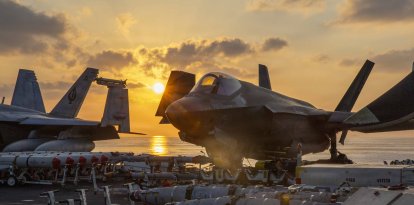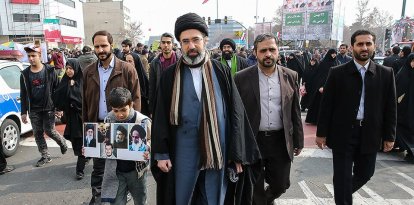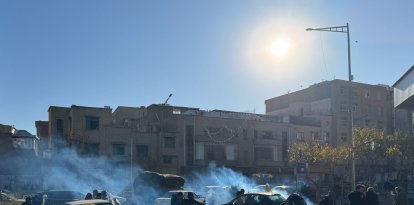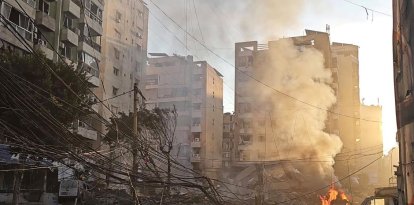Several Western governments say they are open to dialogue with terrorists for a transition in Syria
The UN claims that the HTS Islamists are giving "positive signals" regarding the transition process after the fall of Bashar Assad's regime.
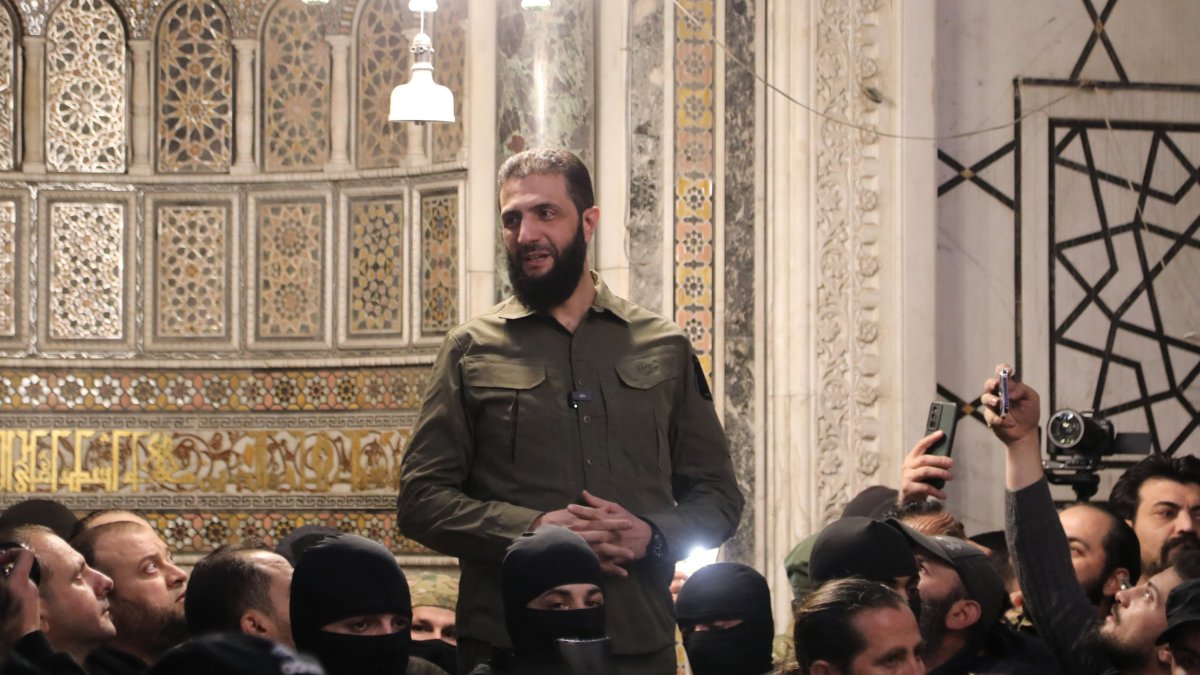
Abu Mohamed al Golani, leader of HTS.
Several Western governments have shown an openness to dialogue with Syrian rebels, among whom the Hayat Tahrir al Sham (HTS) terrorists, led by Abu Mohamed al Golani, occupy a prominent position. This comes after Syrian rebels overthrew the regime of Bashar Assad. Earlier this week this was assessed as such by the leaders of France and Germany, while the United Kingdom put forward a similar scenario.
The intentions of Western governments would be to accompany the transition of power in Syria as peacefully as possible, or so they have assured. Meanwhile, the United States shows signs of wanting to remain on the sidelines of the processes in Syria, despite the fact that it maintains its military base near the Iraqi border in Al Tanf.
This Monday, French President Emmanuel Macron and German Chancellor Olaf Scholz, asserted in a statement that they welcome the end of the Assad regime, noting that the dictator "had caused terrible suffering to the Syrian people and great harm to his country."
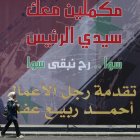
World
The Assad dynasty in Syria: a history of violence, authoritarianism and corruption
Leandro Fleischer
Similarly, British Minister for Intergovernmental Relations, Pat McFadden, announced that the British government will consider whether the Islamist terrorist group Hayat Tahrir al Sham should remain designated as a terrorist organization after the change of power in Syria, the British Minister for Intergovernmental Relations said.
"We will consider it. And I think it will depend partly on what happens in terms of how that group behaves now," McFadden told Sky News, when asked about such consideration for the Islamist terror group.
Hayat Tahrir al Sham, heir to al Qaeda in Syria.
With the support of Turkey, they moved from the north to the south, disrupting pockets of resistance from the Assad regime.
Among the various militias and groups that constitute the Syrian opposition front to the Assad regime, Hayat Tahrir al Sham (HTS), the Salafist group that was born as a split from Al Qaedain Syria, stands out.
At its head is Abu Mohamed al Golani, emir of the terrorist group. The organization was cemented on the foundations of the al-Nusra Front, one of the most violent terrorist groups in the Syrian civil war.
HTS is listed as a terrorist organization by most international governments. This is the case of United States, United Kingdom and the European Union.
However, the organization is trying to change its image to that of a much more moderate organization far removed from Al Qaeda.
UN speaks of "positive signals" from HTS terrorists
The United Nations special envoy to Syria, Geir Pedersen, assured on Tuesday that "the reality so far is that HTS and the other armed groups have been sending positive signals to the Syrian people."
"They have been sending messages of unity, of inclusiveness," he said, adding that "reassuring things have also been seen in Aleppo and Hama on the ground."
Pedersen insisted, however, that "we have to see that what they say is put into action on the ground."
"The most important test will be how the transitional arrangements in Damascus are organized and how they are implemented."
Nine months ago, a UN Security Council resolution added Al Nusra to the list of terrorist organizations, Pedersen recalled Tuesday, noting that this was a "complicating factor" in the situation.

World
'The human slaughterhouse': Brutal torture in al-Assad's prisons comes to light
Leandro Fleischer
Israel carried out more than 310 airstrikes on Syrian targets since Sunday
The Israel Defense Forces (IDF) has continued with its airstrike campaign against the military infrastructure of the scrapper Assad regime. According to several local sources, around 310 military and Syrian Defense Ministry positions have been hit.
Since Sunday, the United States and Israel have been trying to neutralize all that remains of the Chemical arsenal of the Assad regime, developed last century as a deterrence tool against its enemies.
According to AFP, which has correspondents present in Damascus, the Syrian capital, Israeli bombardments have reached positions near the city. Several open sources have confirmed these bombings, which took place during the early hours of Monday to Tuesday.
A scientific research center in Damascus under the Defense Ministry was completely destroyed, noted an AFP journalist. According to the United States, that facility was linked to Syria's chemical weapons program.
The OSDH, with a vast network of sources in Syria, recorded "almost 310 bombings" against airports, radars, weapons and ammunition depots or military research centers for "the destruction of weapons" of the former government, allied with Iran and the Lebanese Hezbollah movement.
IDF denies any advance outside buffer zone
Lt. Col. Nadav Shoshani, an Israeli military spokesman, said that "reports circulating in the media about the alleged advance of Israeli tanks toward Damascus are false," and claimed that Israeli troops are stationed inside a buffer zone between the Israel-controlled Golan Heights and Syria.
The Israeli military had earlier said troops would enter the buffer zone "and several other locations necessary for its defense."
Turkey, Qatar and Iran accuse Israel of violating Syrian sovereignty
Since the fall of the Bashar Assad regime, the Israel Defense Forces have advanced their positions in the Golan Heights to advance into Syria's interior and occupy the regional demilitarized buffer zone.
Israeli forces have since also advanced along the border between Lebanon and Syria northward. Latest reports place Israeli mechanized infantry approximately 30km from Damascus.
Iran condemned as a "violation" of international law this Israeli incursion. "This aggression is a flagrant violation of the UN Charter," Iranian diplomatic spokesman Esmail Baqai said in a statement issued Monday night.
The same reproaches came from the governments of Turkey and Qatar, considered the main backers and sponsors of some of the Islamist rebel groups that launched last week's blitzkrieg offensive against the Assad regime.
The UN also called on Israel to cease its operations in Syria, asserting that this is a violation of the 1974 agreements between the two countries, signed after the Israeli seizure of the Golan Heights following the 1967 war.














